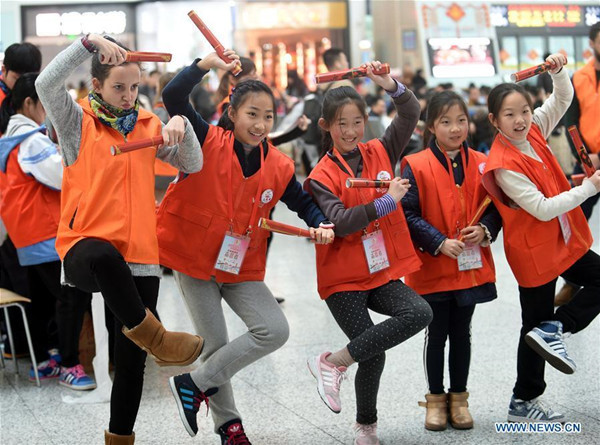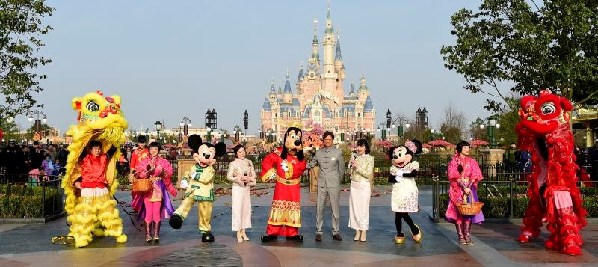Since arriving in Beijing to study in 2014, every Chinese New Year Sabaa Ali El-Tayeb has bought a stuffed toy animal.
This year, the Year of the Rooster, she bought a rooster on Wangfujing, a busy commercial street in downtown Beijing. Last year, the year of the Monkey, she bought a lovely monkey toy.
“I will take these toys back home, and when I finish my degree they will remind me of my time in China,” said the Sudanese woman, who is studying literature at Beijing Language and Culture University.
The Chinese zodiac assigns one of 12 animals, either real or mythological, to each year. This lunar year began on Saturday.
“Celebrating Spring Festival in China makes me love China even more,” said Tayeb.
On Thursday, Tayeb’s university organized an event where foreign students could try their hands at making dumplings, a traditional food eaten during the festival.
Tayeb said she liked this aspect of the festival the most. “Back home we have similar important meals where we eat specific food and extend our best wishes to each other.”
Besides dumplings, Chinese New Year is a time for temple fairs, red lanterns, paper-cuts, blessings of good fortune and ancestor worship.
Basma Bayomy, an Egyptian student at the same university, said she planned to visit a temple fair in Chaoyang Park on Sunday.
The girl, who has been in Beijing since 2012, spent one Spring Festival at her Chinese classmate’s home in Shijiazhuang, a city 300 km south of Beijing.
Bayomy was deeply impressed with the Spring Festival in 2014. She remembers how her classmate’s father left out plates of food for their families’ ancestors.
Similarly, Egyptians leave offerings of fruit and bread on the graves of their ancestors. Both traditions, Bayomy said, are rooted in respect for the family.
Like Chinese, many foreigners put couplets, Chinese characters wishing for good fortune, on their front doors.
Marie, a British translator in Beijing, was sent a couplet by her Chinese friend on Thursday. She stuck them on the door of her apartment, took a photo of herself standing in front of it, and shared it with her parents in Britain.
“These couplets are an expression of hope for the future and contain the Chinese spirit of ‘harmony’,” she said.

